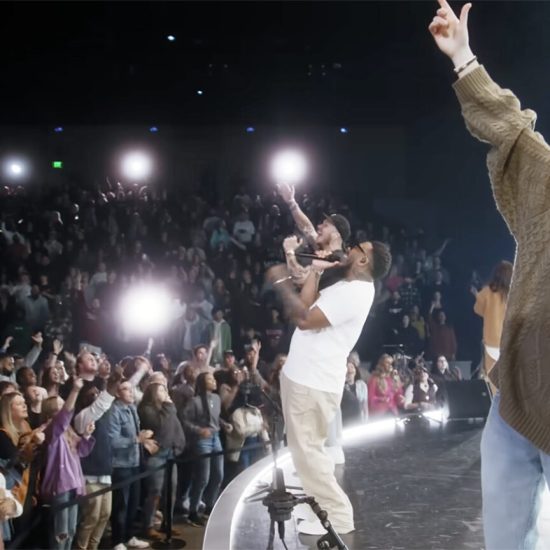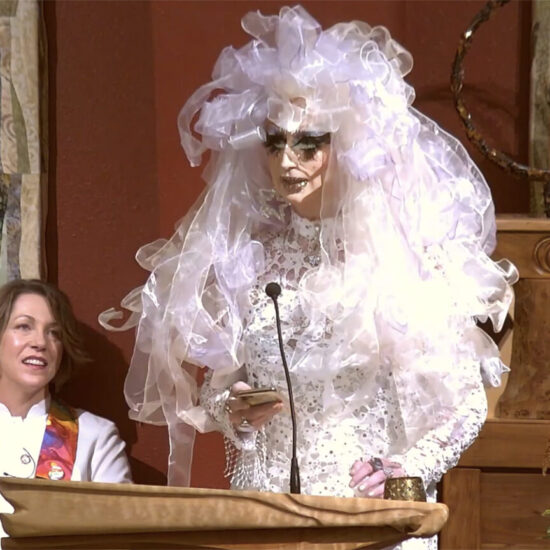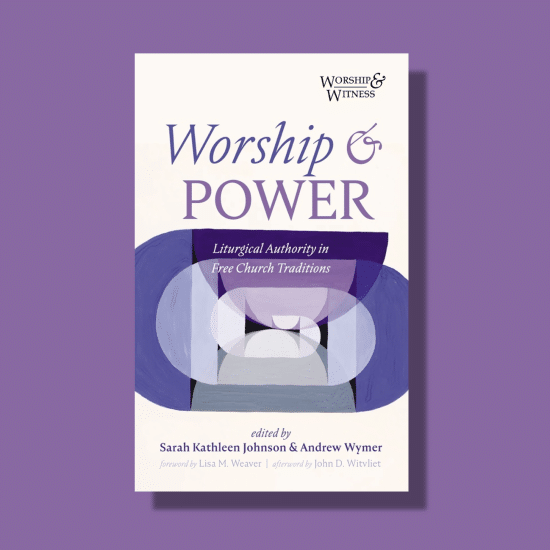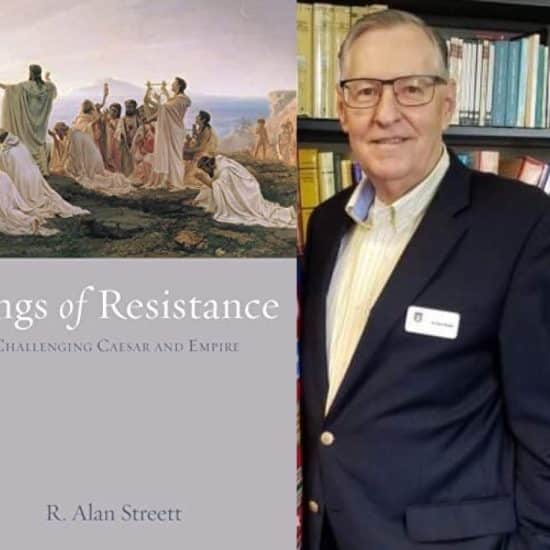
Christian musician Sean Feucht sparked headlines after he renamed a Labor Day Christian concert a “worship protest” to get around coronavirus restrictions in Seattle, Washington. Although he wrongly downplays the coronavirus danger and still didn’t actually follow health rules, his language should remind us of the inherent role worship plays as a protest.
Worship is inherently a protest.

(Miguel Bruna/Unsplash)
The problem is too often we miss the political implications of worship because we’ve privatized our religious practices and compartmentalized our faith. But when we worship Jesus as Lord, we are saying Caesar is not. Worship is political.
That’s why King Saul was rejected from his political position because of his worship. It’s why Amos and other biblical prophets say God rejected the worship of those passing unjust laws. It’s why the Magi seeking to worship the newborn Jesus led Herod to fear the loss of his political power. It’s why when Jesus rode in on Palm Sunday, the praise songs from the crowd represented a direct challenge to those who claimed to rule the land. It’s why John in his apocalyptic vision mixed scenes of heavenly worship with condemnations of the political empire he called “Babylon.”
And sometimes we worship false gods as a protest against the Way that God has provided for us. For instance, when Moses came down the mountain and the people were worshiping a golden calf, Joshua heard the worship and declared, “there is the sound of war in the camp.” Moses responded that it’s not sounds of victory or defeat but “the sounds of singing.” But Joshua was still right. To worship the self-made golden item was to wage war against God.
Worship is about allegiance. It’s even in that word. Allegiance is the loyalty we owe to our lord (and in the Old French, the word for lord was liege). When we worship, we submit to our Lord. Another way of putting it might be: your lord is what/who you worship. Thus, when we worship Jesus as Lord, we are protesting all other lords who demand our loyalty and allegiance.
It’s not enough just to make Jesus our Lord on Sunday mornings. And it’s not enough to just make Jesus the Lord over our souls. Jesus must be Lord of all or he isn’t our Lord at all.
That’s why some Methodist pastors have shared communion and a time of worship at the U.S.-Mexico border for several years. Called the “Border Church,” this effort involves Christians meeting on both sides of the border wall that separates our nations, singing praises to our Lord of lords, and then sharing communion. It’s worship as protest.
That’s why some Christians have started holding “Election Day Communion” services on election day to show that our allegiance to the Kingdom trumps our political affiliation or which candidate we supported. After a season of politicians attempting to divide us, Christians gather together around the bread and cup to proclaim we are still one body. It’s worship as protest.
That’s why when most churches in Nazi Germany submitted to the nationalistic government and often even placed the Nazi flag in the sanctuary, the members of the Confessing Church continued to worship God alone. As they declared in the Barmen Declaration of 1934, “We reject the false doctrine, as though there were areas of our life in which we would not belong to Jesus Christ, but to other lords — areas in which we would not need justification and sanctification through him.” It’s worship as protest.
To worship Jesus is to protest all the counterfeit lords. To worship Jesus is to protest the immoral values of this world.
So, while I hope Feucht will listen more carefully to health officials urging us to wear masks and practice social distancing, when it comes to viewing worship as protest, I say sing it!






